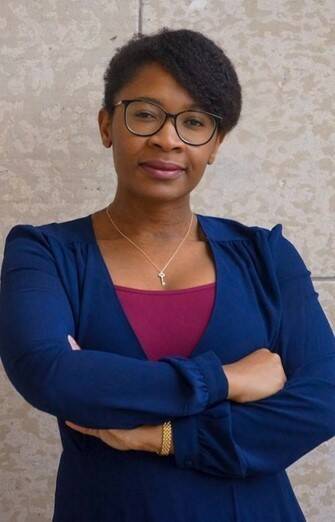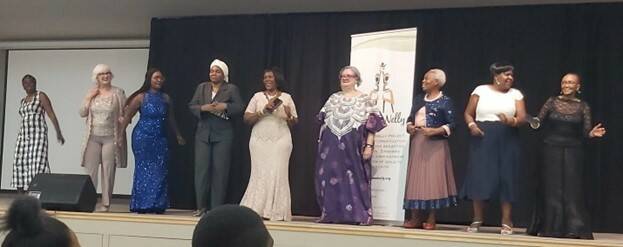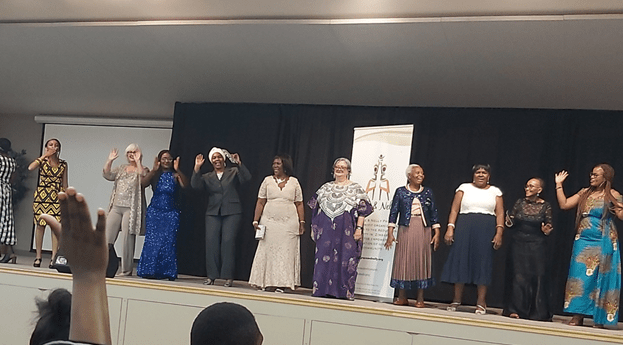Giving Zimbabwe schoolgirls menstrual rights
Advertisement
Read this article for free:
or
Already have an account? Log in here »
To continue reading, please subscribe:
Monthly Digital Subscription
$0 for the first 4 weeks*
- Enjoy unlimited reading on winnipegfreepress.com
- Read the E-Edition, our digital replica newspaper
- Access News Break, our award-winning app
- Play interactive puzzles
*No charge for 4 weeks then price increases to the regular rate of $19.00 plus GST every four weeks. Offer available to new and qualified returning subscribers only. Cancel any time.
Monthly Digital Subscription
$4.75/week*
- Enjoy unlimited reading on winnipegfreepress.com
- Read the E-Edition, our digital replica newspaper
- Access News Break, our award-winning app
- Play interactive puzzles
*Billed as $19 plus GST every four weeks. Cancel any time.
To continue reading, please subscribe:
Add Free Press access to your Brandon Sun subscription for only an additional
$1 for the first 4 weeks*
*Your next subscription payment will increase by $1.00 and you will be charged $16.99 plus GST for four weeks. After four weeks, your payment will increase to $23.99 plus GST every four weeks.
Read unlimited articles for free today:
or
Already have an account? Log in here »
Hey there, time traveller!
This article was published 11/10/2022 (1154 days ago), so information in it may no longer be current.
A group of African women in Winnipeg is helping hundreds of women and girls in Zimbabwe by tackling a potentially taboo subject — menstruation — and sending them reusable period products.
The goal of the Winnipeg-based Grace & Nelly Project is to reduce “period poverty,” and help Zimbabwean girls stay in school.
Ruvimbo Chimutsa, president and founder of the Grace & Nelly Project, says more than 70 per cent of girls in rural Zimbabwe can’t afford menstrual products and an estimated five per cent of Zimbabwean girls do not finish school because of that.

SUPPLIED
Ruvimbo Chimutsa, president and founder of the Grace & Nelly Project, says more than 70 per cent of girls in rural Zimbabwe can’t afford menstrual products and an estimated five per cent of Zimbabwean girls do not finish school because of that.
“Our end goal, and my personal opinion, is that governments around the world should be able to provide menstrual pads to women and girls free, the same way they provide condoms free for men,” Chimutsa says.
Scotland became the first country to provide free period products when it passed the Period Products Act in November 2020.
Since 2020, the Grace & Nelly Project has provided girls in Zimbabwe with reusable menstrual pads to help ensure they stay in school.
The Winnipeg non-profit raised more than $3,000 recently with two fundraising events; one organized by the Manitoba Basketball African Association and another at the St. Vital EMC Church.
In addition, they received $15,000 from Queen’s University’s Smith School of Business and Grand Challenges Canada, a non-profit that provides money to create solutions for critical health and development challenges in the developing world.
The $15,000 will help to buy sewing machines, equipment for a small-scale factory and a community centre to provide training in sewing and financial literacy, says Abigail Marumbwa-Kawadza, a director with the Grace & Nelly project and a unit co-ordinator at the Saul and Claribel Simkin Centre in Winnipeg.
Marumba-Kawadza says the project hopes to expand to include about 500 women by April, providing them with grants of up to $200 each as start-up funds.

SUPPLIED
A Grace & Nelly Project event in August at the St. Vital EMC Church featured a “grannies fashion show”.
Meanwhile, more than 110 people packed the Mennonite Brethren Collegiate Institute in September to watch the final of the basketball match between Cameroon and Nigeria, held as part of the Manitoba Basketball African Association fundraiser.
A Grace & Nelly Project event in August at the St. Vital EMC Church featured a “grannies fashion show”
“We achieved our targets for the fundraiser,” Chimutsa said “We made over $3,000, which is absolutely fantastic for us. The thing with all our fundraisers, is that we want them to be educational as well.”
The idea of subsidized-pads came about after a conversation Chimutsa said she had with a group of 20 women in March 2020, who suggested that they could make their own menstrual pads to sell amongst themselves.
Training for 163 women began in 2021 with the Grace & Nelly Project providing resources that enabled a pilot group to start making reusable pads to sell to other women for only $1.25 while giving them free for schoolgirls.
The project was named after the grandmothers of Chimutsa and Marumbwa-Kawadza, who contributed immensely to raising both women in Africa.

The project is being piloted in 13 villages in the Goromonzi district, which is about two hours drive from Harare, the Zimbabwean capital.
This story was written for the Winnipeg Free Press Reader Bridge as part of a partnership with New Canadian Media.
fpcity@freepress.mb.ca
History
Updated on Tuesday, October 11, 2022 9:54 AM CDT: Fixes tile photo

